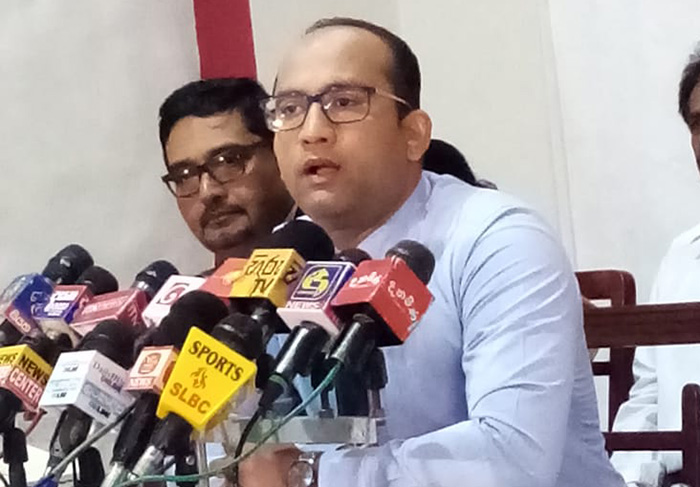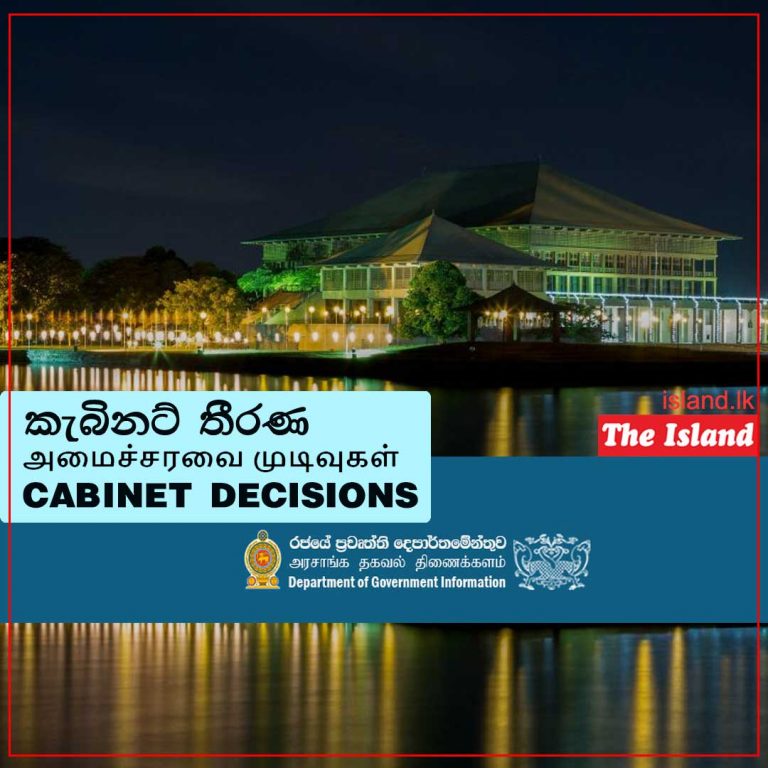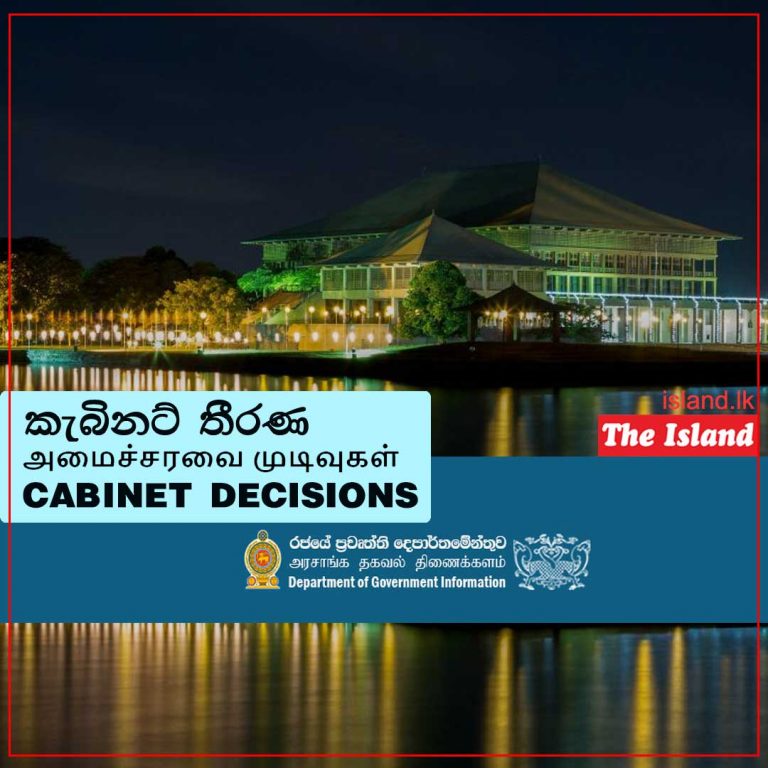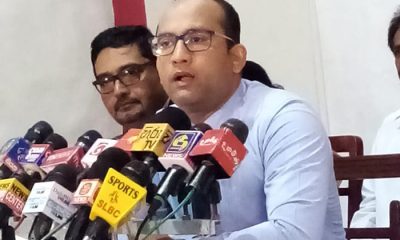News
Campaign launched to push for abolition of PCs

By Shamindra Ferdinando
Chief Organiser of Lankalokaya and former Southern Provincial Council member Pasanda Yapa Abeywardena yesterday (19) urged major political parties/alliances to consider the abolition of the costly Provincial Council system as a priority.
Abeywardena asked them to take a clear stand on PCs introduced in terms of the 13th Amendment to the Constitution that was enacted in the wake of the Indo-Lanka accord of July 29, 1987. The young politician, who is the current Chairman of Sathosa, said that a bankrupt country couldn’t continue to squander public funds on a system that didn’t benefit the people.
The incumbent Governor of the North Western Province Lakshman Yapa Abeywardena’s son, Pasanda, received the top job at Sathosa in early Aug 2022, within weeks after Ranil Wickremesinghe’s election by Parliament as the President.
Pasanda, who served as a member of the last Southern PC, said so addressing the media at Nippon Hotel. Former UNP lawmaker R.A.D. Sirisena and Attorney-at-Law Kanishka Basnayaka, too, explained why major political parties/alliances should publicly declare their intention to do away with PCs in the run-up to the presidential and parliamentary polls scheduled for later this year and early next, respectively.
Referring to a statement issued by Milinda Moragoda, Sri Lanka’s former High Commissioner to India, recently, The Island asked them whether they had consulted the ex-minister regarding the issue before the media briefing. Pasanda Yapa said that they conversed with Moragoda and they were on the same page.
Pasanda Yapa quoted Moragoda as having told them that India wanted to address the north-east issue but didn’t pressure Sri Lanka over the continuation of PCs.
When The Island pointed out that India had repeatedly pressed Sri Lanka for the full implementation of the 13th Amendment to the Constitution even at the Geneva-based United Nations Human Rights Council over the years, Pasanda Yapa declined to comment claiming that it was a diplomatic matter.
At the onset of the briefing, Pasanda Yapa said that since the establishment of PCs in 1988, successive governments had allocated a staggering Rs. 7,000 bn for them. Of that amount approximately Rs. 5,000 bn or 71 percent had been recurrent expenditure, namely salaries, payments, etc., he said, adding that the government could divert available funds to meet vital needs by doing away with PCs.
Lankalokaya emphasised that Pradeshiya Sabhas could be strengthened and various other alternatives discussed to address the grievances of the people at the periphery.
They pointed out PCs were introduced at a time when the then JRJ government was under pressure to address the concerns of Tamil speaking people.
The media was told that they intended to address selected issues in the run-up to national elections. According to them, the campaign against PCs would be the launch of Lankalokaya initiative that would be discussed with various interested parties.
They compared the ongoing discussion on the abolition of the executive presidency with the push for doing away with PCs. Ex-Minister Sirisena, who had represented the first PC in the late 80s, said that it was a very heavy and unbearable burden on the people struggling to make ends meet.
Nationalist groups say that the executive presidency shouldn’t be abolished as long as PCs remain.
News
Amendment of the Inland Revenue Act No. 24 of 2017

Approval of the Cabinet of Ministers has been granted at their meeting held on 19.05.2025 in order to introduce amendments to the Inland Revenue Act No. 24 of 2017 including the proposed tax revisions to enhance the tax structure paving way for state financial integrity based on revenue.
Accordingly, the revised draft bill has been prepared by the legal draftsman and clearance of the Attorney General has been received.
Therefore, the Cabinet of Ministers has granted approval for
the resolution furnished by the President in his capacity as the Minister of Finance, Policy Planning and Economic Development to publish the aforementioned draft bill in the government gazette notification and subsequently, forward the same to the Parliament for its concurrence.
News
Cabinet nod for “National Mineral Policy” – 2026

The National Mineral Policy was prepared for the first time in the year 1999, and the aforementioned policy has been amended in 2023 to cover matters such as preparing an updated data system related to mineral resources, adding value to the export of minerals, encouraging mineral-related industrialists, extracting mineral resources and managing the environment sustainably, and resolving the issues related to the ownership of the land arising in extracting mineral resources.
The revised National Mineral Policy has been reupdated in line with the manifesto “A Sustainable Resource Utilization – Generation of the Highest Benefit” under the policy statement of the current government” A Thriving Nation – A Beautiful Life.”
Accordingly, the Cabinet of Ministers has approved the resolution presented by the Minister of Industries and
Entrepreneurship to implement the so-formulated “National Mineral Policy—2026.”
Latest News
Twelve sentenced to death by Gampaha High Court

The Gampaha High Court has sentenced Twelve (12) individuals to death over the 2022 murder of former Polonnaruwa District Member of Parliament Amarakeerthi Athukorala and his security officer.
-

 Features4 days ago
Features4 days agoMy experience in turning around the Merchant Bank of Sri Lanka (MBSL) – Episode 3
-

 Business5 days ago
Business5 days agoZone24x7 enters 2026 with strong momentum, reinforcing its role as an enterprise AI and automation partner
-

 Business4 days ago
Business4 days agoRemotely conducted Business Forum in Paris attracts reputed French companies
-

 Business4 days ago
Business4 days agoFour runs, a thousand dreams: How a small-town school bowled its way into the record books
-

 Business4 days ago
Business4 days agoComBank and Hayleys Mobility redefine sustainable mobility with flexible leasing solutions
-

 Business5 days ago
Business5 days agoHNB recognized among Top 10 Best Employers of 2025 at the EFC National Best Employer Awards
-

 Editorial7 days ago
Editorial7 days agoAll’s not well that ends well?
-

 Business5 days ago
Business5 days agoGREAT 2025–2030: Sri Lanka’s Green ambition meets a grid reality check














